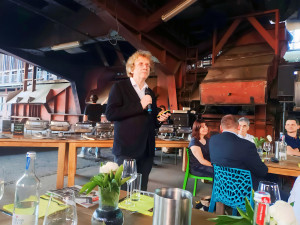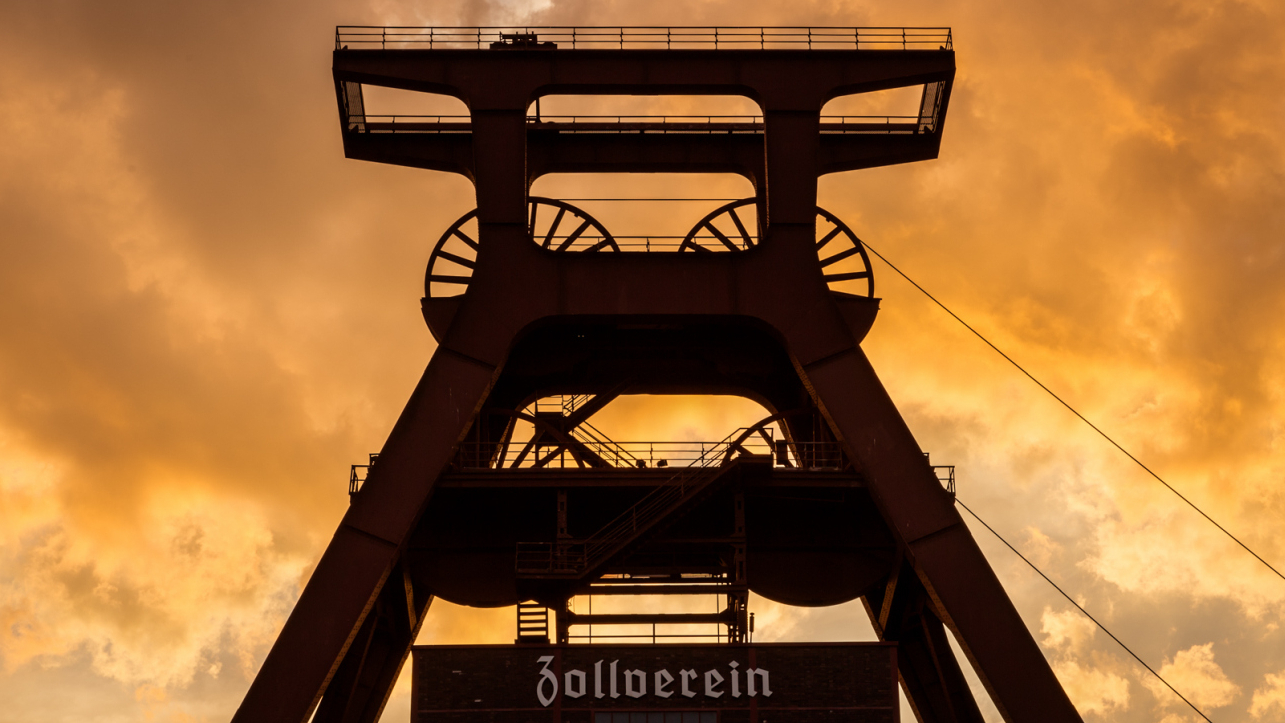Green Electronics' is a technology forum on sustainability in electronics production. At the first event, it became clear that some things are already underway, but that there is still a lot to do. It also highlighted the hurdles that need to be overcome.
The companies MTM Ruhrzinn, kolb Cleaning Technology and Stannol are organizing the Green Electronics Technology Forum as a team and have ZVEI e. V. as a partner. How do we want to produce in the future? This question was explored at the first 'Green Electronics Technology Forum' at Zeche Zollverein in Essen. After all, if you want to remain competitive, you can no longer neglect climate protection and sustainability. But how can sustainable electronics production be made economically viable and profitable? What are the challenges, but above all the opportunities?
Rethinking is necessary
 Prof. Dr. Michael BraungartAftera guided tour of the historic location Zeche Zollverein, the first day began with a keynote speech by Prof. Dr. Michael Braungart, Baumgart EPEA, on the 'Cradle to Cradle' design concept he developed. He emphasized that doing the wrong thing perfectly means 'doing it perfectly wrong' in reality. A major problem with the current economic system is that residues can be found everywhere and we are constantly exposed to them. Instead of aiming for climate neutrality, we would be better off doing something positive for the environment or pursuing a climate-positive goal. The highly controversial presentation 'Cradle to Cradle as an opportunity for innovation' led to many discussions among the 90 or so attendees. Are we doing enough and could we completely rethink our business model to focus on sustainability?
Prof. Dr. Michael BraungartAftera guided tour of the historic location Zeche Zollverein, the first day began with a keynote speech by Prof. Dr. Michael Braungart, Baumgart EPEA, on the 'Cradle to Cradle' design concept he developed. He emphasized that doing the wrong thing perfectly means 'doing it perfectly wrong' in reality. A major problem with the current economic system is that residues can be found everywhere and we are constantly exposed to them. Instead of aiming for climate neutrality, we would be better off doing something positive for the environment or pursuing a climate-positive goal. The highly controversial presentation 'Cradle to Cradle as an opportunity for innovation' led to many discussions among the 90 or so attendees. Are we doing enough and could we completely rethink our business model to focus on sustainability?
New impetus and good examples
On the second day, seven presentations offered new impetus and good examples, but also critical questions such as: Do the measures taken really make sense or is it more a case of 'greenwashing' for marketing?
After the welcome and opening by moderator Sabrina Nickel, there was another keynote entitled 'Why not save the world? Climate neutrality as a corporate responsibility' by Lisa Reehten, Bosch Climate Solutions. Bosch has beenCO2-neutral(Scope 1 and 2) since 2020 and is implementing around 1,000 climate and environmental neutrality projects in its 400 plants worldwide, some of which she listed. These include value stream projects with regard to Scope 3, including product use. Lisa Reehten said: "When we start, it has an impact in the world." Communication is important: you have to pick people up. An analysis of materiality is also important for selecting projects.
Pascal Biesenbach, Viadukt, presented a solution to the challenge of 'building stock', showing how the energy transition can be organized smartly and efficiently: a digital ecosystem that shows options and measures based on a building analysis and supports the planning of modernization with a craftsmen's marketplace. This assistant for the building energy transition is free of charge and can be found at www.energiequartier.de.
What's in store for us?
Stephanie Kopp from the German Council for Sustainable Development provided information on the German Sustainability Code in the context of current reporting obligations. The German Sustainability Code (GSC) comprises 20 criteria or key figures in one report with one format for everything. The Sustainability Code is more than just a reporting standard. The Sustainability Code database is at its heart. It enables a comparison with other companies. The Code also offers support, including as a guideline, and is also a reporting platform for the upcoming Corporate Sustainability Reporting Directive (CSRD), as Stephanie Kopp demonstrated by means of a comparison.
Manfred Amberger, Zollner Elektronik, made it clear that life(re)cycle management and sustainability should be used as an opportunity for the EMS industry. In view of the increasing scarcity of resources, recycling and extending the service life by reusing materials will become increasingly important in the future. Design-for-everything (DfX) therefore also includes design-for-recycling (DfR), which is a new challenge for product design. But sustainability is an opportunity: more than 50 tons are recycled every year.
Andreas Nolte, Aurubis, provided information on multi-metal recovery through circuit board recycling. Over 100,000 tons of electronic scrap are recycled at the Lünen site, including circuit boards and cell phones with relatively high levels of valuable metals. Multi-metal recycling is based on copper. The metals dissolved in it can be separated using pyro- and hydrometallurgical processes. Nolte described how the process is carried out and which systems are used, including copper electrolysis.
Of the approximately 2,200 EMS companies in Europe, only four generate a turnover of over €1 billion. Michael Künsebeck, in4 ma, reported on the current status of sustainability in the EMS landscape. In general, waste has been avoided for years and economic advantages have been exploited. These activities are now also being used for 'greenwashing', of which Michael Künsebeck listed a few examples. Other measures aimed at sustainability that have been successfully applied by other companies include increasing product life, reusing components, miniaturization and individual measures such as optimized benefit design.
Dr. Gerhart Aust and Quentin Zapf, Prettl Electronics, described sustainability strategies in electronics production as well as the challenges and implementation using their own company as an example. The Prettl Group aims to be climate-neutral by 2025. The 'Prettl GoZero' initiative was launched in 2020 to achieve this. Climate neutrality is to be achieved through energy efficiency, renewable energies, green electricity and offsetting measures. In 2022, the company's ownCO2 emissions were reduced to 0 tons through green electricity, district heating/biogas and an e-vehicle fleet. Measures were also taken to improve energy efficiency, such as switching to LED lighting, eliminating compressed air leaks and introducing energy performance indicators to reduce the energy required per assembly. It is also important that all employees are involved and incentivized to do so.
Both during the Q&A sessions after the presentations and during the breaks, there was a lively exchange between the participants, which made it clear that the industry is willing to embrace new approaches.
Encouraging conclusion - the industry is aware of its responsibility
The electronics industry is aware of its responsibility with regard to sustainability and climate neutrality. Many companies have already established processes and taken the first steps. Those who have not yet done so are advised to simply do so. Because we can only achieve sustainability together. And together we can go further. The next 'Green Electronics' technology forum will take place on May 15 and 16, 2024, once again at the Zeche Zollverein in Essen.


